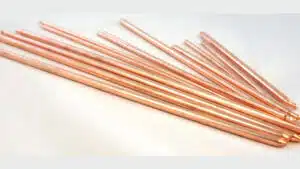Most engineers involved with temperature measurement know there are several methods for measuring temperatures of fluids and solids. The oldest and most common method for measuring the temperature of a fluid such as air is the standard mercury-in-glass thermometer. However, this is not acceptable for measuring surface temperatures of solid objects. For surface temperature … [Read more...]
Augmenting Development of Electronics Cooling Technologies with Machine Learning Tools – a Heat Pipe System Example
The traditional pathway for development of thermal management technologies for electronics has been to analyze using heat transfer theory augmented by computational tools such as finite difference or finite element methods, CFD tools, or thermal management system simulation tools, sometimes in tandem with prototype system fabrication and testing. Combining recently available … [Read more...]
7 Most Common Myths About Heat Pipes
Overview Over many decades, Boyd has led innovation of superior heat pipe and two-phase thermal management solutions across many major industries from mobile and consumer electronics to NASA applications and next-generation enterprise and 5G equipment. We’ve observed many misconceptions about heat pipes, how they work, and how to best utilize them in applications while working … [Read more...]
Why Low Gassing Adhesives Matter
The aerospace, electronic, and optical industries often involve environments where outgassing from adhesives can pose significant challenges. When exposed to vacuum or elevated temperatures, conventional adhesives may release volatile compounds, leading to contamination or performance degradation of sensitive components. To mitigate these risks, engineers might consider low … [Read more...]
The Applicability of JESD51-14 for the Determination of Junction to Case Thermal Resistance
Rjc (or sometimes ThetaJC, θjc, Rth_jc), the so-called ‘junction to case’ thermal resistance, is a thermal metric that enables comparison of the thermal performance of packaged semiconductor devices from differing suppliers. The JEDEC standard JESD51-14 [1] documents a method for the experimental determination of Rjc. Although applicable for packages that exhibit a … [Read more...]
- 1
- 2
- 3
- …
- 36
- Next Page »










